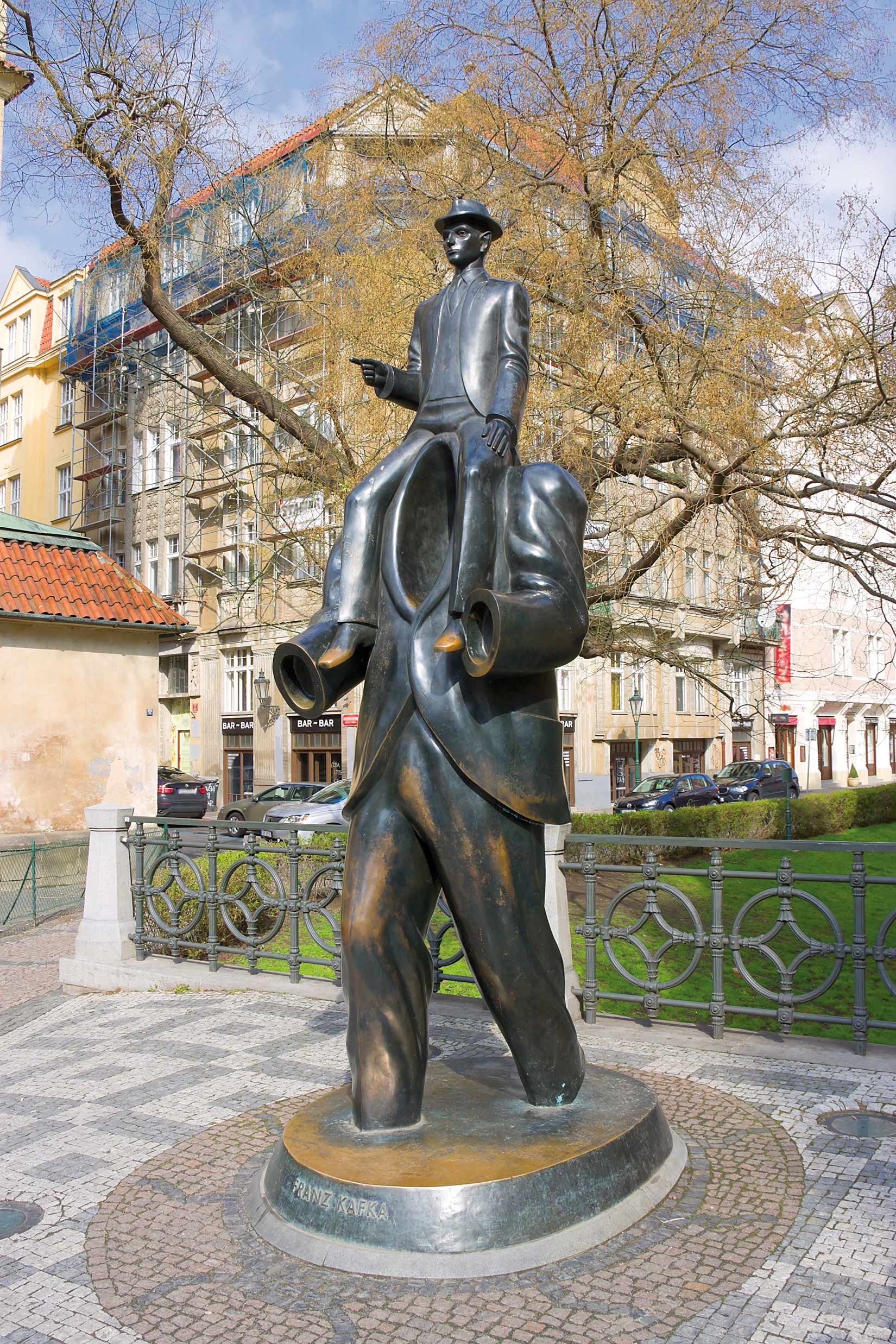DALI DREAMS OF
JOSEPH K.
In the elastic
time of plastic memory
Desperate
fingers hang melting watches
From the
branches of fruit-lorn trees
Marking
evanescence in a universe
That refuses to
stand on its only leg
But instead
tumbles, falls, rolls down
All the way to
apathia, athambia, aphasia
In which all
the pleas, all the prayers
Are reduced to
the stammer of a radio
Out of station
or a bee buzzing around
A pomegranate
with Tigers caught
Roaring
mid-air, helplessly before the Law
Whose parable
is lost on the only one
It was meant to
serve while he roams
And rages and
rebels and riles and then
With a head on
a block dies, "Like a dog!"

Soft Construction with Boiled Beans (Premonition of Civil War) -- Salvador Dalí

The Disintegration of the Persistence of Memory -- Salvador Dalí

Franz Kafka -- Jaroslav Rona
Franz Kafka died from tuberculosis at 40. He had published a few short stories in literary magazines and 2 collections, "Betrachtung" (Contemplation) in 1912 and "Ein Landarzt" (A Country Doctor) in 1919, but he was largely unknown to the public. He ordered his friend Max Brod, a popular, prolific writer (who eventually published 83 books) to destroy his unpublished works, many unfinished) but Brod (who called him "the greatest poet of our time") disobeyed him and prepared his writings for publication. The 1st of the Brod-Kafka books to appear was "Der Prozess" (The Trial), published in 1925 though written (and never finished) in 1914/1915. It relates the story of Joseph K., a bank cashier who was arrested on his 30th birthday but was never informed of his charges; his subsequent trial sessions were secret, his judges anonymous, and the court processes both complicated and unknown. His trial was never completed, but on his 31st birthday he was taken from his home by 2 men and taken to a quarry. They put his head on a block, and one of them produced a double-edged butcher knife, which they passed back and forth. "K. knew then precisely, that it would have been his duty to take the knife... and thrust it into himself." However, the other men executed him. His last words were, "Like a dog!" At the time of Kafka's death and the birth of his literary reputation, Salvador Dalí, a student in Madrid, was just beginning his artistic career and had not yet embraced surrealism (though he was Madrid's 1st cubist). In 1931 he painted "The Persistence of Memory," one of his most significant works, in which he introduced the melting-watch motif that he reprised in several of his paintings. In 1954 he revisited that work with "The Chromosome of a Highly-coloured Fish's Eye Starting the Harmonious Disintegration of the Persistence of Memory," later known as "The Disintegration of the Persistence of Memory." This piece marked his loss of interest in surrealism. His original landscape was depicted as being flooded, and the plane and block from the original was divided into brick-like shapes that floated in relation to each other, with nothing binding them. A dead olive tree was breaking apart. The hands of the soft watches floated above their dials, and the distorted human visage from the original painting was morphing into one of the strange fish floating above it.
ReplyDelete"Apathia" is the Latin word for apathy. The Greek "apatheia" denoted a positive quality, a Stoic freedom from suffering. In the 15th century the French "apathie" appeared, which became the English "apathy" ca. 1600. It acquired its negative connotation of indolence or indifference ca. 1733. "Athambia" is imperturbabilty, and aphasia is the loss of ability to articulate or comprehend ideas. Samuel Beckett, in "Waiting for Godot," memorably linked the 3 words in Lucky's discourse on God: "Given the existence as uttered forth in the public works of Puncher and Wattmann of a personal God quaquaquaqua with white beard quaquaquaqua outside time without extension who from the heights of divine apathia divine athambia divine aphasia loves us dearly with some exceptions for reasons unknown but time will tell and suffers like the divine Miranda with those who for reasons unknown but time will tell are plunged in torment plunged in fire whose fire flames if that continues and who can doubt it will fire the firmament that is to say blast hell to heaven so blue still and calm so calm with a calm which even though intermittent is better than nothing but not so fast and considering what is more that as a result of the labors left unfinished crowned by the Acacacacademy of Anthropopopomentry of Essy-in-Possy of Testew and Cunard it is established beyond all doubt all other doubt than that which clings to the labors of men that as a result of the labors unfinished of Testew and Cunard it is established as hereinafter but not so fast for reasons unknown that as a result of the public works of Puncher and Wattmann it is established beyond all doubt that in view of the labors of Fartov and Belcher left unfinished for reasons unknown..."
ReplyDeleteBeckett was renowned both for his English and his French works, so he knew that the French believed that "wattman" was an English word for a streetcar driver; a "puncher," then, would be the conductor who prevents tickets from being reused by punching holes in them. So, the "public works of Wattman and Puncher" refer to public transportation, and Lucky's ravings about God as a streetcar out of control are an extension of this. The Acacacacademy of Anthropopopomentry punningly relied on "caca" and "popo" as childish euphemisms for excrement, and Fartov and Belcher are really "fart and belch." (A bit further on, Lucky notes "that man in short that man in brief in spite of the strides of alimentation and defecation is seen to waste and pine waste and pine wastes and pines wastes and pines...."